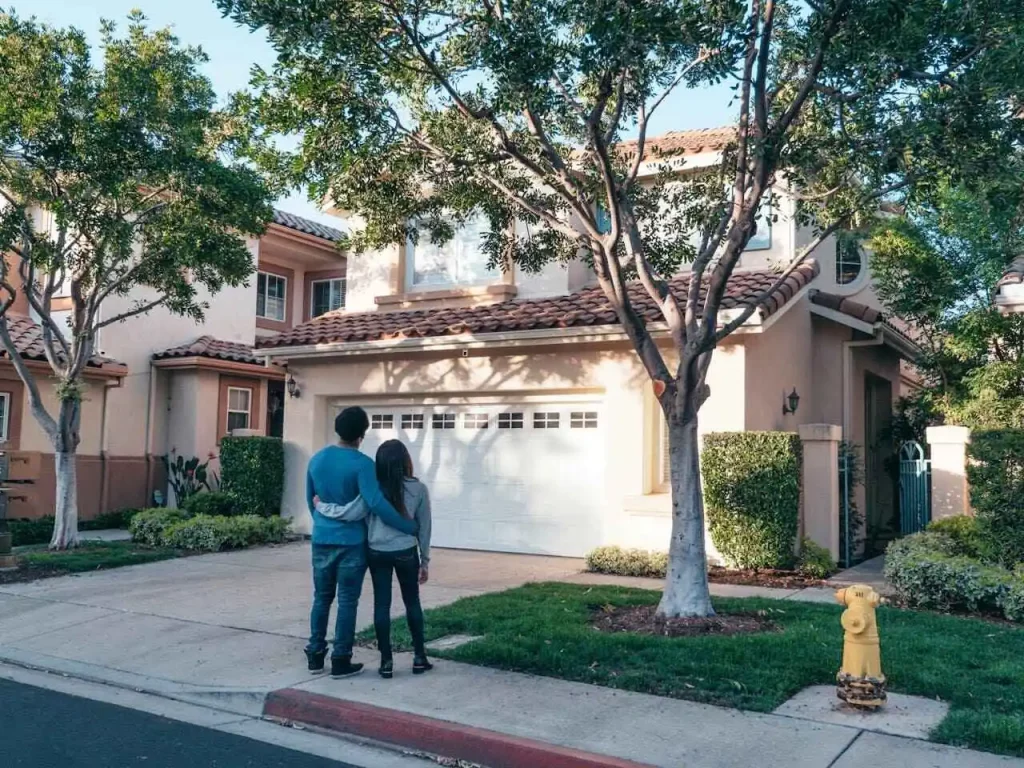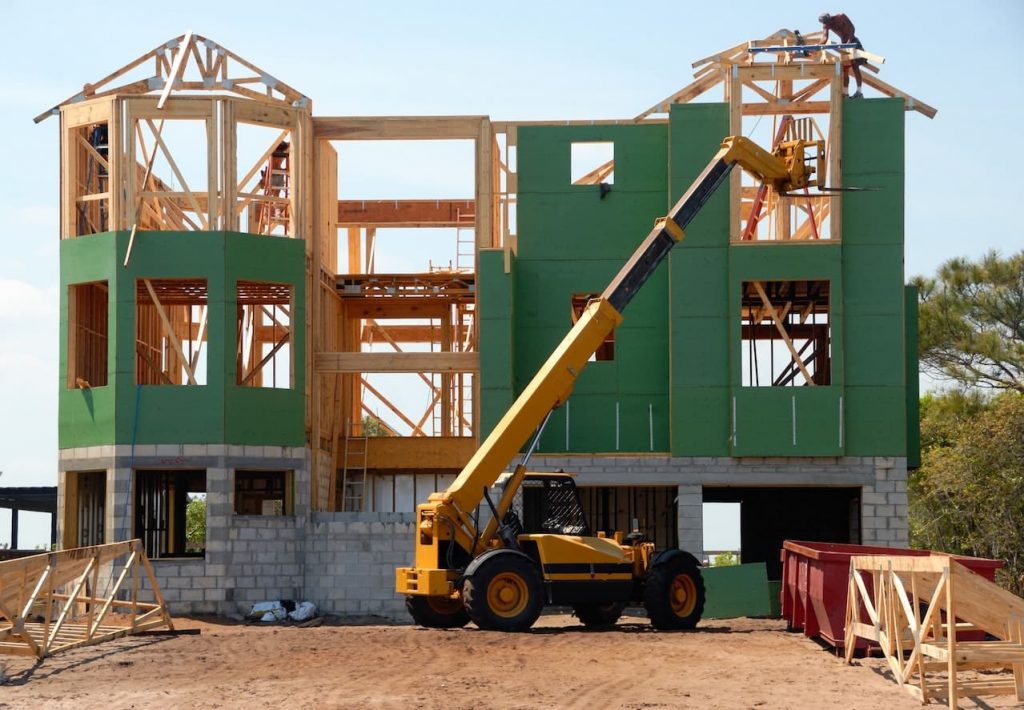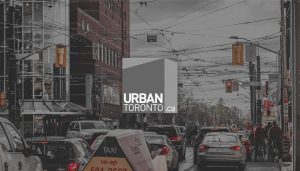As the first cohort of Generation Z begins to enter adulthood, the prospect of homeownership in Canada presents both challenges and opportunities . Born roughly between the mid-1990s and early 2010s, Gen Z faces a unique set of circumstances in the Canadian housing market just like the millennials. Owning a home is a significant milestone in life, representing stability, independence, and investment in one’s future. Here is your go-to handbook for unlocking homeownership. Find everything you need to grasp the opportunities and checklist to making homeownership affordable.

Homeownership Challenges faced by Gen Z
Gen Z is coming of age in a time marked by economic volatility, including unpredictable job markets and wage stagnation. These factors can make it difficult for young adults to establish stable financial footing and save for a down payment.
1. High Housing Costs:
Like their millennial predecessors, Gen Z faces the reality of soaring housing prices in many Canadian cities. According to a report by the Canadian Real Estate Association (CREA) in 2023, housing prices in urban areas spiked with Toronto experiencing a 15% rise, Vancouver 12%, and Montreal 10% over the previous year.
2. Mounting Debt:
Statistics Canada data from 2022 reveals that the average student loan debt for Canadian graduates is approximately $28,000. This substantial debt burden upon graduation hinders the ability of Gen Z individuals to save for homeownership (source: Statistics Canada).
3. Tightened Mortgage Regulations:
Stricter mortgage qualification criteria introduced by Canadian regulators in recent years pose a challenge for Gen Z homebuyers. These regulations, intended to curb excessive borrowing & mitigate risks in the housing market, may make it difficult for young Canadians to secure home mortage.
Opportunities to make homeownership affordable
Let us lay out steps and strategies for becoming a Gen Z homeowner in Canada, highlighting the potential avenues to affordable home buying.

Government Support Programs for Homeowners:
The Government of Canada provides various programs and incentives to assist individuals in purchasing a home. These initiatives aim to support homebuyers in their endeavors. Some of these offerings include:
- The Home buyers’ amount: Qualifying individuals may receive a non-refundable tax credit of up to $1,500.
- GST/HST new housing rebates: Eligible individuals could receive a rebate for a portion of the tax paid during the home purchase.
- The Home Buyers’ Plan (HBP): First-time homebuyers may withdraw up to $35,000 from their registered retirement savings plan (RRSP) without tax implications to use towards purchasing their home.
- First-Time Home Buyer Incentive: Offers a percentage of the home’s purchase price for a down payment. The specific amount could be either 5% or 10%.
- First Home Savings Account (FHSA) : Allows individuals to save up to $40,000 tax-free for purchasing a home, with an annual contribution limit of $8,000.
It’s worth noting that provincial or territorial governments may also provide their own home buying programs and incentives. Research on provincial or territorial government to find which schemes you may be eligible for and set your knowledge base
Exploring shared equity arrangements:
Typically, when buying a home, the purchaser furnishes the down payment for the property. However, in a shared equity arrangement, both the home buyer & a shared equity investment provider contribute to the down payment. This enables the home buyer to afford down payment, reduce monthly mortgage payments, or maintain liquidity for other financial needs.

Home buyers contribute a portion of the down payment (typically at least 5% of the purchase price). The shared equity investment provider supplements the rest of the down payment (often ranging between 5% and 15%). The extent of the contribution from shared equity investment providers may vary among different providers.
In a shared equity investment, no payments are required until the arrangement ends. Instead, the provider receives a share of the home’s appreciation or depreciation in exchange for contributing to the down payment. The homeowner retains the exclusive right to live in the home, while the provider does not. This makes homeownership via shared equity a very affordable option.
Opting for Pre-construction properties
Pre-construction properties are typically sold at lower prices compared to completed units in the same area. Developers often offer special pricing and incentives to early buyers, allowing them to secure a home at a lower rate. Purchasing early in the development process safeguards buyers from property value appreciation.

Pre-construction properties allow extended timeline for payment. Typically, buyers are required to make a series of deposits during the construction period. The remaining balance due upon completion. This extended payment timeline can make homeownership more manageable for buyers.
Related Article : Top 5 Reasons to Buy Pre-Construction
Checklist for homeownership
Here are general guiding steps that would help you fulfil your dream of homeownership:

1. Set your goals
- Define your homeownership goals, including the type of property you want, the location, and the timeline for purchasing.
- Break down your goals into smaller, achievable milestones to track your progress.
2. Calculate Your Home Budget:
- Evaluate your current income and expenses to understand your financial situation.
- Determine how much you can afford to spend on a home by using online mortgage calculators. Aim for a down payment of at least 5% to 20% of the home’s purchase price.
- Create a detailed budget that allocates funds for essential expenses, savings, and discretionary spending.
- Identify areas where you can cut back on expenses to increase your savings rate .
3. Set up Tax-Free Savings Account (TFSAs) :
- Contribute to a TFSA to grow your savings tax-free for home purchase. Any interest, dividends, or capital gains earned within the account are not subject to taxation.
- Set up automatic transfers from your checking account on payday. Start with a small amount, like 10% of your paycheck, and gradually increase it over time. This will help you track your progress and avoid spending the money on other expenses.
- Take advantage of employer-sponsored retirement plans such as RRSPs (Registered Retirement Savings Plans) to grow your savings tax-efficiently.
4. Explore Down Payment Assistance Programs:
- Find government incentives such as the Home Buyers’ Plan (HBP) which can help you save for a down payment.
- Justo’s cashback offers a lifeline for homebuyers, alleviating some of the financial strain associated with those initial mortgage payments. By providing assistance with the first few installments, relieves some of the financial strain that comes with making the downpayment.
5. Get Pre-approval:
- Get pre-approved for a mortgage to understand how much you can afford. Then streamline the homebuying process when you’re ready to make an offer.
Conclusion
In the midst of economic challenges and soaring housing costs, the dream of homeownership for Gen Z in Canada may seem daunting. However, armed with knowledge and strategic planning, Gen Z can overcome these obstacles and unlock the doors to their own homes. By taking advantage of government support programs, exploring innovative shared equity arrangements, and considering the benefits of pre-construction properties, Gen Z can pave a path towards homeownership. It begins with setting clear goals, understanding your financial situation, and diligently saving for a down payment. With determination and perseverance, Gen Z can turn the dream of homeownership into a tangible reality, establishing stability and investing in their future.
Consult with a Justo expert today to plan your homeownership journey.
Call : 1-647-696-2919
Find latest MLS listings in Greater Toronto Area with Justo
- Toronto Homes for Sale
- Ajax Homes for Sale
- Brampton Homes for Sale
- Burlington Homes for Sale
- Markham Homes for Sale
- Milton Homes for Sale
- Mississauga Homes for Sale
- Newmarket Homes for Sale
- Oakville Homes for Sale
- Oshawa Homes for Sale
- Richmond Hill Homes for Sale
- Vaughan Homes for Sale
- Whitby Homes for Sale
- Renovations for Resale: Top Upgrades That Increase Home Value - April 30, 2024
- Decoding Real Estate Listings: A Guide to Understanding the Jargon - April 22, 2024
- Investing in Real Estate: Opportunities in the Canadian Market - April 17, 2024



